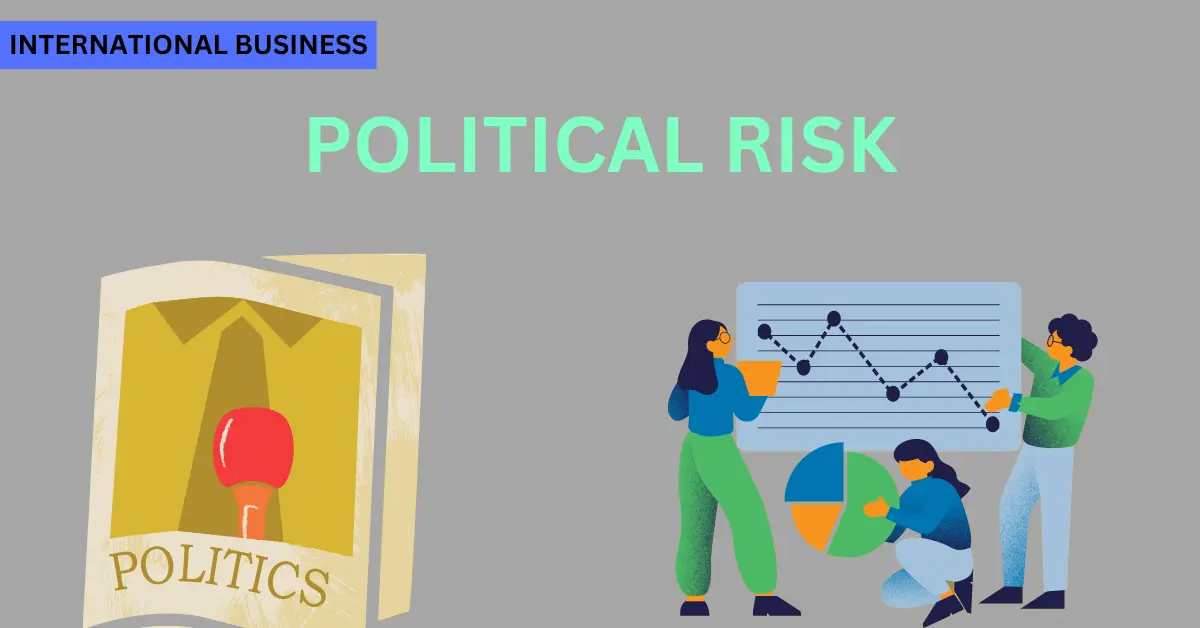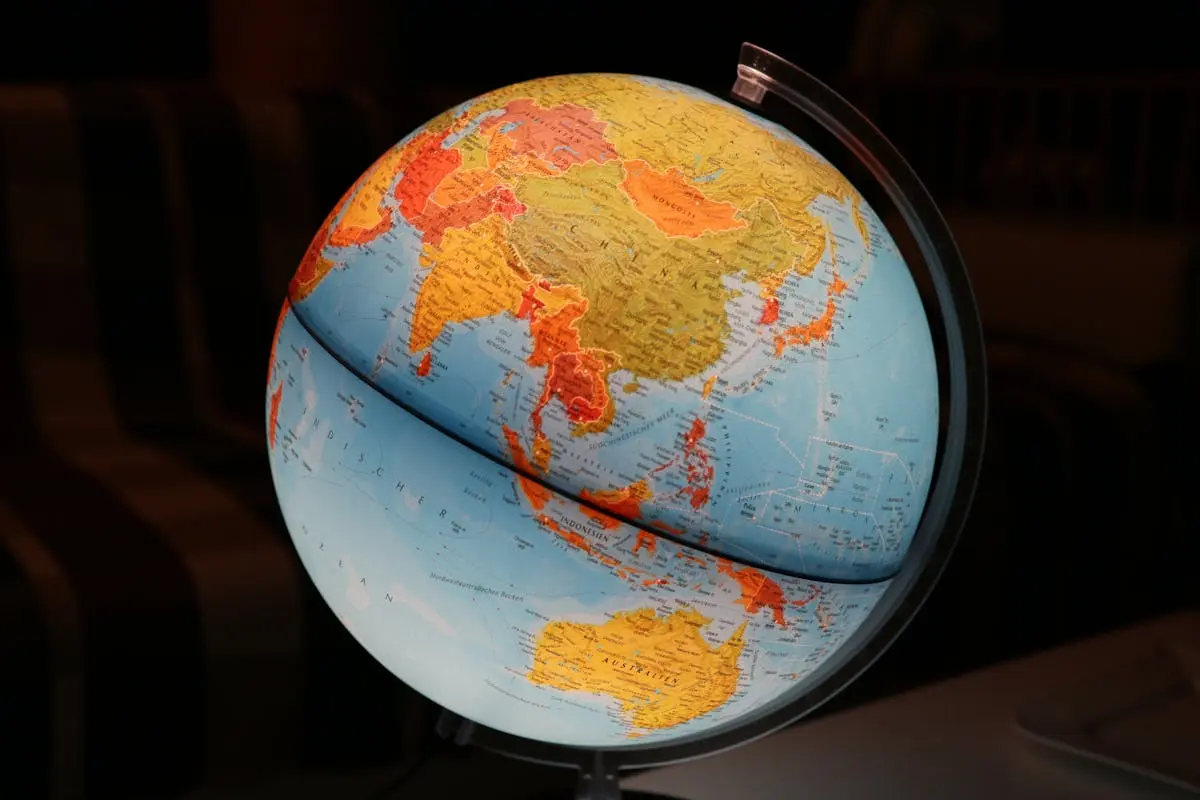
Political risk in international business refers to the potential problems companies face when operating in foreign countries due to changes in the political environment. Imagine setting up a business abroad and suddenly the government changes the rules, or social unrest disrupts your operations. This is what political risk looks like. Understanding this risk is essential for businesses that want to succeed internationally.
Types of Political Risk in International Business
Macro Political Risk
Macro political risk in international affects all businesses in a country. This includes events like coups or major policy changes by a new government. For example, if a country decides to take control of all private companies, every business in that country will be affected.
Micro Political Risk
Micro political risk in international business is specific to a particular sector or company. It includes regulatory changes that target a specific industry or unfavorable actions against a particular business. For example, a new law that only affects foreign tech companies.
Sources of Political Risk in International Business
Government Actions
Government actions are a major source of political risk in international business. These actions include changes in tax laws, nationalization of assets, and sudden policy shifts. For example, a government might decide to seize foreign-owned assets without providing adequate compensation.
Social Unrest
Social unrest, such as protests, strikes, and civil disorder, can disrupt business operations. This can lead to property damage, supply chain interruptions, and even harm to employees.
Regulatory Changes
Frequent and unpredictable changes in regulations create an unstable business environment. These changes can include new environmental regulations, labor laws, or import/export restrictions.
Examples of Political Risk
Expropriation
Expropriation is when a government takes control of a foreign company’s assets without adequate compensation. This happened in Venezuela when the government nationalized the oil industry, causing significant losses for foreign investors.
Currency Inconvertibility
Currency inconvertibility occurs when a country restricts the conversion of its currency, making it hard for businesses to transfer profits out of the country. This can severely affect a company’s financial health.
Political Violence
Political violence includes terrorism, war, and civil strife, posing significant risks to businesses. It can lead to the destruction of property and halt business operations entirely.
Impact on International Business
Financial Losses
Political risk in international business can lead to huge financial losses due to asset seizure, operational disruptions, and currency devaluation. These losses can be devastating, especially for companies with significant investments in unstable regions.
Disrupted Operations
Political instability can severely disrupt business operations, leading to production delays, supply chain issues, and employee safety concerns.
Reputational Damage
Operating in politically unstable regions can damage a company’s reputation. Negative perceptions can arise from being associated with controversial governments or appearing to exploit volatile situations.
Assessing Political Risk
Risk Assessment Models
Various models are available to assess political risk in international business. These include the Economist Intelligence Unit (EIU) risk model, which evaluates political stability, economic conditions, and regulatory environment.
Country Risk Analysis
Country risk analysis involves studying a country’s political, economic, and social conditions to gauge potential risks. This analysis helps businesses make informed decisions about entering or continuing operations in a country.
Political Risk Insurance
Political risk insurance helps businesses mitigate potential losses. This insurance covers risks like expropriation, currency inconvertibility, and political violence, providing a safety net for companies.
Managing Political Risk
Diversification
Diversifying investments across multiple countries reduces the impact of political risk in international business in any single location. This strategy ensures that not all resources are concentrated in a high-risk area.
Strategic Alliances
Forming strategic alliances with local businesses or governments can help navigate the political landscape. These partnerships provide valuable insights and facilitate smoother operations.
Lobbying and Advocacy
Engaging in lobbying and advocacy can influence political decisions favorably. By actively participating in the political process, businesses can help shape policies that affect their operations.
Case Studies of Political Risk
Venezuela’s Nationalization of Oil Companies
Venezuela’s decision to nationalize its oil industry serves as a clear example of political risk. Foreign oil companies suffered massive losses as their assets were seized without adequate compensation.
Brexit’s Impact on Businesses
The United Kingdom’s exit from the European Union (Brexit) created significant political risk for businesses operating in the region. Uncertainty around trade agreements, tariffs, and regulations disrupted operations and planning.
Trade Wars and Tariffs
Recent trade wars, especially between the US and China, illustrate political risk through tariffs and trade barriers. These measures have affected global supply chains and increased costs for businesses.
Role of Government in Mitigating Political Risk
Bilateral Investment Treaties
Bilateral investment treaties (BITs) protect investors by ensuring fair treatment and compensation in case of expropriation. These treaties reduce political risk by providing legal recourse.
Free Trade Agreements
Free trade agreements (FTAs) facilitate smoother international business by reducing tariffs and standardizing regulations. These agreements mitigate political risk in international business by creating a more predictable trade environment.
Diplomatic Interventions
Governments use diplomatic channels to resolve disputes and protect their businesses abroad. Diplomatic interventions help de-escalate conflicts and negotiate favorable terms for companies.
Role of International Organizations
World Bank
The World Bank provides financial and technical assistance to developing countries, stabilizing their economies and reducing political risk. Its projects often promote good governance and transparency.
International Monetary Fund (IMF)
The IMF offers financial support and policy advice to countries facing economic instability. Its interventions help stabilize economies, reducing political risk for businesses.
World Trade Organization (WTO)
The WTO facilitates international trade by ensuring that trade flows as smoothly and predictably as possible. It provides a framework for resolving trade disputes, reducing political risk for businesses.
Tools and Strategies for Businesses
Hedging Strategies
Hedging strategies, such as currency hedging, protect businesses from financial losses due to political risk in international business.
Insurance Products
International business insurance products’ political risk is designed to protect businesses against specific political risks. These products cover losses from expropriation, political violence, and currency inconvertibility.
Local Partnerships
Forming partnerships with local entities helps businesses navigate the political landscape more effectively. Local partners provide insights, facilitate operations, and help mitigate risks.
Conclusion
Understanding political risk in international business is crucial for any business operating internationally. The dynamic nature of global politics means businesses must stay vigilant and adaptable. Companies can protect their investments and ensure long-term success by assessing and managing political risk effectively.








